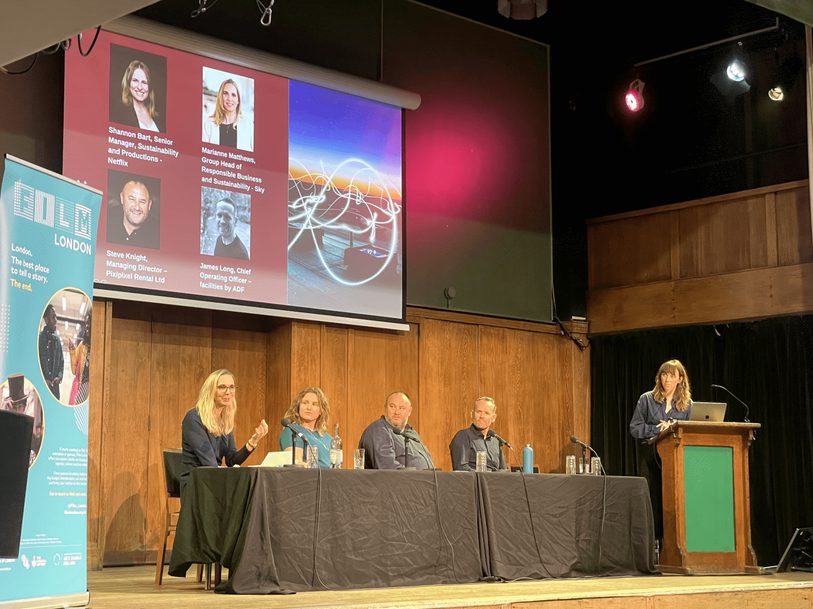Film London and Creative Zero Launch New Report Informing Steps Toward Industry-Wide Decarbonisation
Latest 19 Sept 2024News Story

Film London and Creative Zero today (19 September) launched a new report taking an in-depth look at decarbonising supplier transport and mobile power for London’s Film and TV industry. The first of its kind report, supported by Netflix and Sky, includes key recommendations for industry action in the London Metropolitan area, with the hope that findings can be shared across the UK and beyond. Crucially, the report offers industry suppliers, alongside the industry at large, an insight into what a just transition to decarbonised vehicle and mobile power technologies might look like.
The burning of fossil fuels for transport and power is the single greatest contributor to greenhouse gas emissions from London’s film and TV industry. As suppliers tend to own these technologies, a collaborative approach is therefore crucial in the path toward industry-wide decarbonisation. Today, broadcasters, streamers, suppliers, sustainability professionals and producers from across London met to talk through the report’s findings, discuss feedback and explore possible next steps for a swift transition away from fossil fuels. Key recommendations of the report range from financing the transition to exploring new business models.
Daniela Kirchner, Chief Operating Officer of Film London, said: “The coming years will witness an energy transition the likes of which has not been seen since the end of the 19th century. As the Capital strives for clean air, we hope this research can have a positive and meaningful impact on decarbonisation of vehicles and mobile power units, in turn, demonstrating once again how our industry can lead by example.”
Roxy Erickson, Sustainable Business Consultant, Creative Zero, said: “The collaboration and cooperation exhibited by those who took part in this project begins to exemplify the type of effort needed across the industry to create a healthy future for it in the Capital. Not just the partnership between ourselves and Film London, nor the support from Netflix and Sky, but equally the suppliers, producers and commissioners coming together to support the data. This level of working together, often across competitors, leaves us in good stead for hitting net zero within a time frame that is just and necessary. We are excited that this report begins to map out just how possible that is.”
Ben Holt, Head of Production, UK, Netflix, said: “The Fuel Project reinforces what we are learning on the ground and paints a picture of how studios like Netflix can phase out the use of fossil fuels in our production operations. This transition will help us to modernise our productions and meet our climate goals.”
Fiona Ball, Group Director, Bigger Picture and Sustainability, Sky,said: “At Sky, we’re committed to working with our partners, suppliers and production companies to reduce emissions across our value chain and promote system-wide change to protect the planet. This report is a great example of the industry collaboration that is necessary for us to accelerate the transition away from fossil fuels.”
Open an image gallery

The Fuel Project provides practical information, steps and support to film and TV production suppliers as they make the move toward new, low-carbon technologies, helping drive down emissions in the industry. Phase I, in 2022, was a Supplier Guidance Report, which supported industry suppliers to assess the low-carbon energy alternatives available to the industry, including batteries, hydrogen and hydrotreated vegetable oil (HVO), as well as practical actions to reduce the carbon emissions and air pollutants emitted by vehicle transport and mobile power units (generators) in production.
Phase II of The Fuel Project, culminating in this report, takes an in-depth look at what this move to new, low carbon technologies would mean for our climate and for the industry. This report explores how these technologies can reshape transport and mobile power fleets, both immediately and over the next decade, how to make the transition fair for all industry stakeholders and the potential positive contribution this would make to dramatically reducing the sector’s carbon footprint.
Click here to download and read The Fuel Project Shift report.